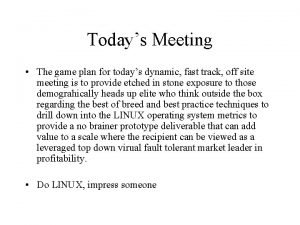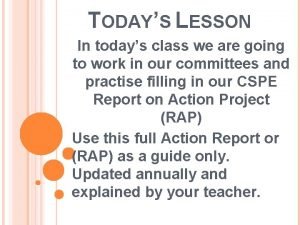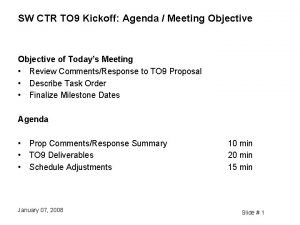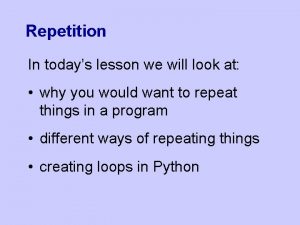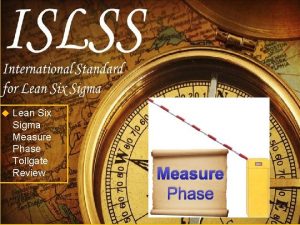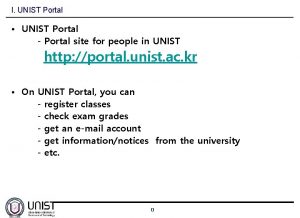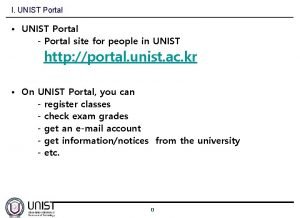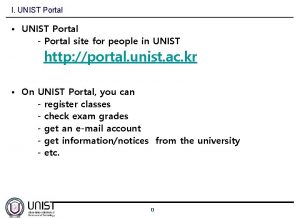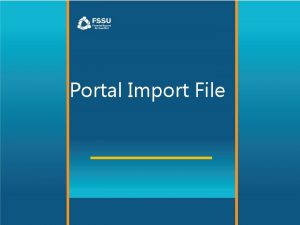STUDENT COURSE DELIVERY EVALUATION student portal Starts today

















- Slides: 17

STUDENT COURSE DELIVERY EVALUATION @ student portal Starts today!

Employment Legislation

As per Senate-sanctioned document • Employment Act 1955. • The legal duties and responsibilities of employers and employees. • Matters pertaining to contracts of service and contracts for service such as appointment, termination etc. • Occupational Safety and Health Act 1994.

• Employment Act 1955, Labour Ordinance (Sabah), Labour Ordinance (Sarawak) • Industrial Relations Act 1967 • Minimum Standards of Housing and Amenities Act, 1990 • Children and Young Persons (Employment) Act 1966 • Malaysia - Private Employment Agencies Act 1981 • Anti-Trafficking in Persons Act 2007 • Employment (Restriction) Act 1968 • Employment Information Act 1953 • Act related to holidays (2 for peninsular, specific Ordinance for Sabah, Sarawak)

EA 1955 Employer • means any person who has entered into a contract of service to employ any other person as an employee and includes the agent, manager or factor of such first mentioned person, and the word ―employ with its grammatical variations and cognate expressions, shall be construed accordingly Employee • means any person or class of persons— • (a) included in any category in the First Schedule • (b) in respect of whom the Minister makes an order under subsection (3) or section 2 A

OSHA 1994 Immediate Employer • in relation to employees employed by or through him, means a person who has undertaken the execution at the place of work where the principal employer is carrying on his trade, business, profession, vocation, occupation or calling, or under the supervision of the principal employer or his agent, of the whole or any part of any work which is ordinarily part of the work of the trade, business, profession, vocation, occupation or calling of the principal employer or is preliminary to the work carried on in, or incidental to the purpose of, any such trade, business, profession, vocation, occupation or calling, and includes a person by whom the services of an employee who has entered into a contract of service with him are temporarily lent or let on hire to the principal employer • Example of an immediate employer in the private sector includes labour contractors in the workplace. In the public sector or statutory body, the head of department may depending on the facts of each case be considered as an immediate employer.

OSHA 1994 Principal Employer • • • means the owner of an industry or the person with whom an employee has entered into a contract of service and includes— a) a manager, agent or person responsible for the payment of salary or wages to an employee; b) the occupier of a place of work; c) the legal representative of a deceased owner or occupier; and d) any government in Malaysia, department of any such government, local authority or statutory body • Principal employer means the owner of an industry or the person with whom an employee has entered into a contract of service. • Principal employer would include manager, agent or person responsible for the payment of salary or wages to an employee. An agent would be a person authorized to act for another person in business etc. • In the public sector, the government of Malaysia, can be considered as principle employer.

EA 1955 Employer • means any person who has entered into a contract of service to employ any other person as an employee and includes the agent, manager or factor of such first mentioned person, and the word ―employ with its grammatical variations and cognate expressions, shall be construed accordingly Employee • means any person or class of persons— • (a) included in any category in the First Schedule • (b) in respect of whom the Minister makes an order under subsection (3) or section 2 A

EA 1955 - Employee SS 2 A • • (1) The Minister may by order prohibit the employment, engagement or contracting of any person or class of persons to carry out work in any occupation in any agricultural or industrial undertaking, constructional work, statutory body, local government authority, trade, business or place of work other than under a contract of service entered into with— (a) the principal or owner of that agricultural or industrial undertaking, constructional work, trade, business or place of work; or (b) that statutory body or that authority. he may specify but subject to such conditions as he may deem fit to impose. • • (2) Upon the coming into force of any such order, the person or class of persons employed, engaged or contracted with to carry out the work shall be deemed to be an employee or employees and— (a) the principal or owner of the agricultural or industrial undertaking, constructional work, trade, business or place of work; or (b) the statutory body or local government authority, shall be deemed to be the employer for the purposes of such provisions of this Act and any other written law as may be specified in the order.

EA 1955 - Employee Subsection (3) of SS 2 • The Minister may by order declare such provisions of this Act and any other written law as may be specified in the order to be applicable to any person or class of persons employed, engaged or contracted with to carry out work in any occupation in any agricultural or industrial undertaking, constructional work, statutory body, local government authority, trade, business or place of work, and upon the coming into force of any such order— • • • (a) any person or class of persons specified in the order shall be deemed to be an employee or employees; (b) the person, statutory body or local government authority employing, engaging or contracting with every such person or class of persons shall be deemed to be an employer; (c) the employer and the employee shall be deemed to have entered into a contract of service with one another; (d) the place where such employee carries on work for his employer shall be deemed to be a place of employment; and (e) the remuneration of such employee shall be deemed to be wages, for the purposes of such specified provisions of this Act and any other written law.

EA 1955 - Employee First Schedule • • 1. Any person, irrespective of his occupation, who has entered into a contract of service with an employer under which such person’s wages do not exceed two thousand ringgit a month. 2. Any person who, irrespective of the amount of wages he earns in a month, has entered into a contract of service with an employer in pursuance of which— he is engaged in manual labour including such labour as an artisan or apprentice: he is engaged in the operation or maintenance of any mechanically propelled vehicle operated for the transport of passengers or goods or for reward or for commercial purposes • • • 3. he supervises or oversees other employees engaged in manual labour employed by the same employer in and throughout the performance of their work 4 he is engaged in any capacity in any vessel registered in Malaysia and who— (a) is not an officer certificated under the Merchant Shipping Acts of the United Kingdom as amended from time to time; (b) is not the holder of a local certificate as defined in Part VII of the Merchant Shipping Ordinance 1952 [F. M. 70/1952]; or (c) has not entered into an agreement under Part III of the Merchant Shipping Ordinance 1952; or (5) he is engaged as a domestic servant.

OSHA 1994 Employee • • with the work of an industry to which this Act applies and— a) who is directly employed by the principal employer on any work of, or incidental or preliminary to or connected with the work of, the industry, whether such work is done by the employee at the place of work or elsewhere; b) who is employed by or through an immediate employer at the place of work of the industry or under the supervision of the principal employer or his agent on work which is ordinarily part of the work of the industry or which is preliminary to the work carried on in or incidental to the purpose of the industry; or c) whose services are temporarily lent or let on hire to the principal employer by the person with whom the person whose services are so lent or let on hire has entered into a contract of service; • Employees are workers who are directly employed by the principal employer or through an immediate employer at the place of work or whose services are let on hire under a contract of service. • In Malaysia apprentices are to be considered as employees. No mention has been made with regards to trainees. Hence trainee can be considered as other persons at the work place.

Contract of Service • means any agreement, whether oral or in writing and whether express or implied, whereby one person agrees to employ another as an employee and that other agrees to serve his employer as an employee and includes an apprenticeship contract (CA 1955)

Contract of Service • Ready Mixed Concrete (South East) Ltd. V. Minister of Pensions and National Insurance [1968] 2 QB 497. The court held the contract of service exists if these three conditions are fulfilled. – (1) The servant agrees that, in consideration of a wage or other remuneration, he will provide his own work and skill in the performance of some service for his master. – (2) He agrees, expressly or impliedly, that in the performance of that service he will be subject to the other’s control in a sufficient degree to make that the other as a master. – (3) The other provisions of the contract are consistent with its being a contract of service. • As to (i). There must be a wage or other remuneration. Otherwise there will be no consideration, and without consideration no contract of any kind. The servant must be obliged to provide his own work and skill. Freedom to do a job by one’s own hands or by another’s is inconsistent with a contract of service, though a limited or occasional power of delegation may not be…. ”

Contract for Service • is an agreement whereby a person is engaged as an independent contractor, such as a selfemployed person, vendor or freelancer carrying out an assignment or a project for his establishment. For example, a house owner engages services of a painter, a plumber or a grass-cutter for his residence. • (minimumwages. mohr. gov. my/questions/what-is-the-difference-between-a-contract-of-service-and-a-contract-for-service/)

Contract for Service • Employer-Independent Contractor relationship. • A relationship organised around the completion of a onceoff piece of work. • A duty of care, arising from occupiers’ liability. • The employer is generally not liable for the vicarious acts of independent contractors. • In general, protective legislation does not apply, except for the Safety Health and Welfare at Work Act 1989 and the Equality Act. • Various methods of payment, including lump sum per job. • Subject of contract is once-off job. • (http: //www. kala. ie/recent-updates/contract-of-service-and-contract-for-service-what-is-the-difference/)

Contract for Service • Ready Mixed Concrete (South East) Ltd. V. Minister of Pensions and National Insurance [1968] 2 QB 497. The court held the contract of service exists if these three conditions are fulfilled. – (1) The servant agrees that, in consideration of a wage or other remuneration, he will provide his own work and skill in the performance of some service for his master. – (2) He agrees, expressly or impliedly, that in the performance of that service he will be subject to the other’s control in a sufficient degree to make that the other as a master. – (3) The other provisions of the contract are consistent with its being a contract of service. • As to (i). There must be a wage or other remuneration. Otherwise there will be no consideration, and without consideration no contract of any kind. The servant must be obliged to provide his own work and skill. Freedom to do a job by one’s own hands or by another’s is inconsistent with a contract of service, though a limited or occasional power of delegation may not be…. ”
 Class starts today
Class starts today For today's meeting
For today's meeting In today's class
In today's class Proposal kickoff meeting agenda
Proposal kickoff meeting agenda Today lesson or today's lesson
Today lesson or today's lesson Today's lesson or today lesson
Today's lesson or today lesson Example of repitition
Example of repitition Hat is the website to access accenture delivery suite(ads)?
Hat is the website to access accenture delivery suite(ads)? Fire service course delivery
Fire service course delivery Course evaluation chalmers
Course evaluation chalmers Idea course evaluations
Idea course evaluations Objectives of strategic management
Objectives of strategic management One and a half brick wall
One and a half brick wall Course number and title
Course number and title Chaine parallèle muscle
Chaine parallèle muscle Sas information delivery portal
Sas information delivery portal Good morning pupils
Good morning pupils Data collection planning in the measure phase starts with
Data collection planning in the measure phase starts with

